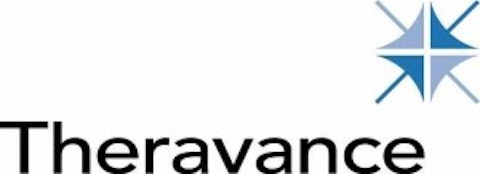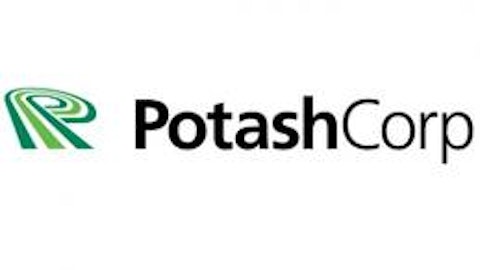The best thing about the stock market is that you can make money in either direction. Historically, stock indexes have tended to trend up over the long term. But when you look at individual stocks, you’ll find plenty that lose money over the long haul. According to hedge fund institution Blackstar Funds, even with dividends included, between 1983 and 2006, 64% of stocks underperformed the Russell 3000, a broad-scope market index.
A large influx of short-sellers shouldn’t be a condemning factor to any company, but it could be a red flag from traders that something may not be as cut-and-dried as it appears. Let’s look at three companies that have seen a rapid increase in the number of shares sold short and see whether traders are blowing smoke or if their worry has some merit.
| Company | Short Increase March 28 to April 15 | Short Shares as a % of Float |
|---|---|---|
| Agrium (NYSE:AGU) | 185.7% | 1.6% |
| GlaxoSmithKline (NYSE:GSK) | 76.1% | 0.2% |
| Provident New York Bancorp (NYSE:PBNY) | 70.2% | 2.9% |
Source: The Wall Street Journal.
Growth, from the ground up
Personally, some trends just make sense. For instance, as baby boomers age, the need for specialized health care is only going to increase. Thinking along these same lines, I feel the need for more efficient and higher-volume-yielding crops is only going to fuel agricultural-based nutrient providers like Agrium over the long run.

But, as my Foolish colleague Dan Caplinger pointed out in March, Agrium has a trick up its sleeve because of its nitrogen-based fertilizer line. This secret weapon helped Agrium produce $2.1 billion in operating cash flow last year, allotting the company ample room for business reinvestment, and the ability to move from an annual dividend of just $0.11 per share in 2010 to a forward payout of $2 per share now. As long as crop yields remain constrained — and I don’t see how they won’t with a rapidly growing global population — crop prices will remain elevated and demand from farmers for Agrium’s growing solutions should be strong.
Breathe easier, optimists
Global pharmaceutical company GlaxoSmithKline has certainly given investors multiple reasons to be wary about its growth prospects, with its inhaled chronic obstructive pulmonary disease drug Advair, previously the fourth-best-selling drug in the world, going off patent last year. While pessimists expected sales of the blockbuster to rapidly deteriorate, we’ve seen nothing of the sort since generic drug producers have had trouble creating a biosimilar product.
If Advair’s continued success wasn’t enough to knock the wind out of the sails of short-sellers, then this week’s decision on Breo Ellipta, an inhaled COPD medication developed with Theravance Inc (NASDAQ:THRX) that utilizes a combination of long-acting compounds from each company to reduce flare-ups and relieve airway obstruction, could be the kill shot. The Food and Drug Administration’s panel voted 9 to 4 in favor of recommending Breo Ellipta for approval last month, and a safety profile with fewer serious side effects does bode well for approval. Although the FDA is under no constraints to follow the advice of its panel, it seems unlikely that Breo isn’t on its way to becoming a blockbuster drug in treating COPD.
GlaxoSmithKline certainly isn’t cheap at 15 times forward earnings, but an approval this week could send shares even higher.
Centralizing their strengths
Although we’re seeing the loan quality for many small and regional banks improve as we’ve cleared many of the hurdles associated with the financial crisis, there is still ample opportunity for mergers and acquisitions in the regional banking industry. Last month we saw this come to fruition with Provident New York Bancorp agreeing to purchase Sterling Bancorp (NYSE:STL) for 1.2625 shares of Provident New York Bancorp stock with the deal expected to close by the end of the year.
Clearly, short-sellers have some angst about Provident’s ability to incorporate Sterling Bancorp (NYSE:STL) into the fold, but I certainly wouldn’t be one of them. The deal actually makes a lot of sense for both parties since they service small and medium-size businesses in the New York metropolitan area and, combined, would have nearly $7 billion in assets. With a more unified and visible presence, Provident would be expected to see even greater results.
Also, as you might have imagined, Provident is expected to realize synergies with respect to the combination. With Sterling Bancorp (NYSE:STL) becoming part of Provident, that means less advertising due to a more visible presence in the New York metropolitan area. As Provident CEO Jack Kopnisky noted when announcing second-quarter results last month, “The combined business will be a more effective competitor in the marketplace than either company on its own.” I happen to agree and would suggest short-sellers look elsewhere for money-making opportunities.
Foolish roundup
This week was a rare trifecta of optimism. The reasons to be pessimistic just haven’t manifested in any of the three cases above, and short-sellers would be wise to think about packing up and moving on to better opportunities.
What’s your take on these three stocks? Do short-sellers have these stocks pegged, or are they blowing smoke? Share your thoughts in the comments section below.
Is this the most trusted name in the fertilizer industry?
With less and less arable land available around the world, increasing yields from existing plots could become vitally important to keeping up with expected population growth. Cheap and effective fertilizers could be the key to achieving this goal. As the global leader in potash production, PotashCorp has established several barriers to entry that make it nearly impossible for competition to break through.
The article Shorts Are Piling Into These Stocks. Should You Be Worried? originally appeared on Fool.com.
Fool contributor Sean Williams has no material interest in any companies mentioned in this article. You can follow him on CAPS under the screen name TMFUltraLong, track every pick he makes under the screen name TrackUltraLong, and check him out on Twitter, where he goes by the handle @TMFUltraLong.The Motley Fool has no position in any of the stocks mentioned.
Copyright © 1995 – 2013 The Motley Fool, LLC. All rights reserved. The Motley Fool has a disclosure policy.
